«There are different reasons why this restaurant differs from other restaurant. One of these is the fact that normally your experience begins once you cross the door. At Amass it starts when you leave home, or your hotel, because arriving here, in this corner of Copenhagen, is a small adventure».
These are the words of Californian Matt Orlando, patron chef at restaurant Amass, which is indeed in a rather secluded part of Copenhagen. It overlooks the lagoon, and is a relatively short distance from the new Noma, hence also not too far from the old location of Renè Redzepi’s old restaurant, where Orlando was sous chef and executive chef.
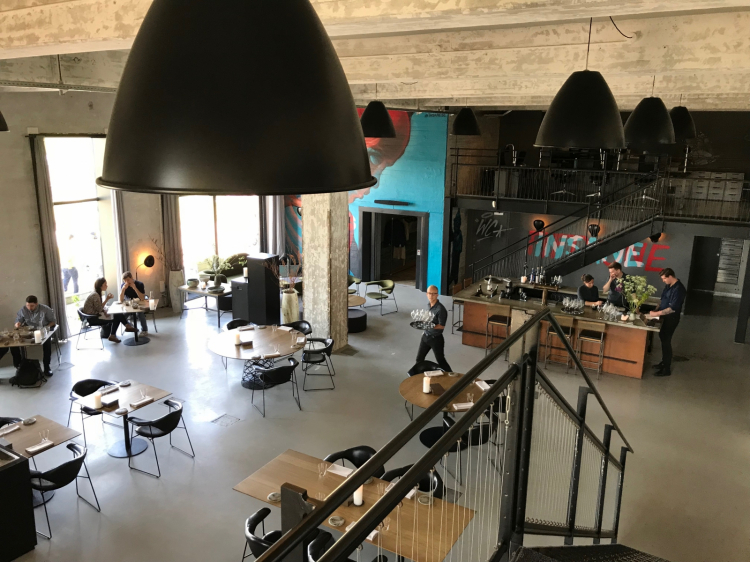
The dining room seen from above
decided to renovate an old industrial warehouse completely, a choice of which he was strongly convinced: «In a place like this, people can do more than sit in a room throughout lunch or dinner. There’s a big garden where you can drink a glass of wine, you can walk by the water, you can spend some time at the bar. There’s more space. The first time I came, it reminded me of a place in New York that I love and where I often went when I lived there: South Brooklyn. I’ve always loved its post-industrial atmosphere. So when I saw all this, I said to myself right away: this is the place, my restaurant will be here».
Amass was opened in July 2013, little under five years ago, by the then executive chef at Noma: «I spent two periods at Noma. First as sous chef. Then my wife – who’s Danish – and I decided to move to New York. After a couple of years, while we were discussing the idea of returning to Copenhagen, René called me, and asked me to return as head chef. I accepted, and said I would guarantee to work for three years, but my plan was to open my own restaurant. Redzepi was as helpful as usual, he supported me all along».
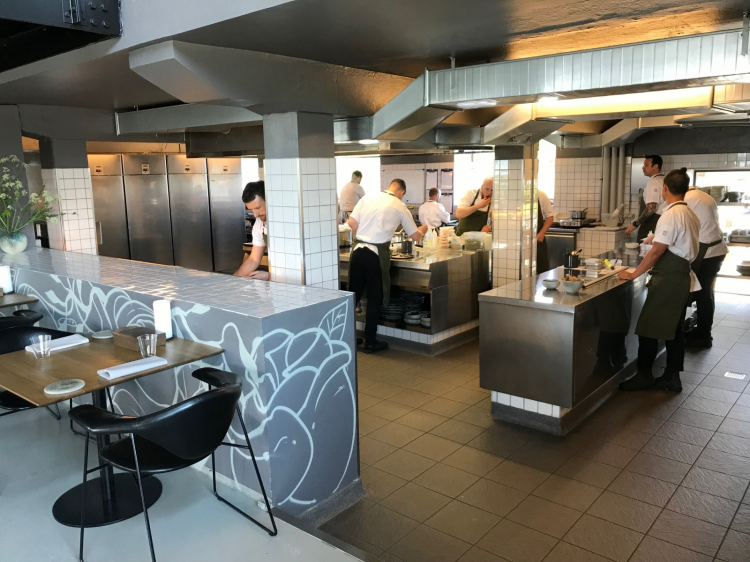
The kitchen overlooking the dining room
While
Orlando’s cuisine shows the influences acquired over the years in the most famous and important restaurant in Northern Europe,
Amass has an original, strong, and precise identity. And not just because of its location, or thanks to the spectacular beauty of its luminous, airy, and contemporary dining room. This is most of all thanks to the way in which he transforms the concept of sustainability into beautiful and delicious dishes. It’s the result of a continuous research, of experiments and attempts.
«When we first opened, five years ago, I thought I had a clear idea of what I wanted to do in this restaurant. But then we opened. In boxing gyms there’s a saying: “Everybody has a plan until they get punched in the face”. See, the first six months were our punch. After that initial phase, winter came, and we stopped for a while. During that break an idea came that we’re still developing: while speaking with the team, a word came up, “responsibility”. We understood it would be a turning point for what we had in mind».
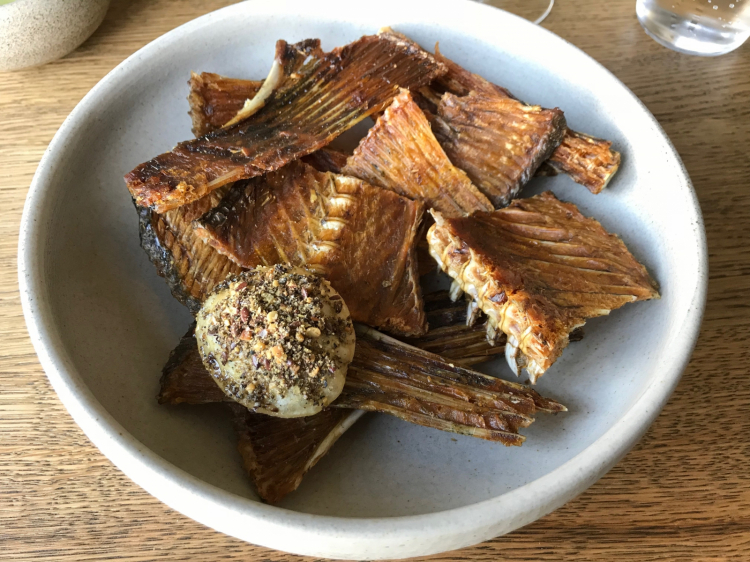
Whipped Zander Roe, Garden Herbs, Toasted Seeds
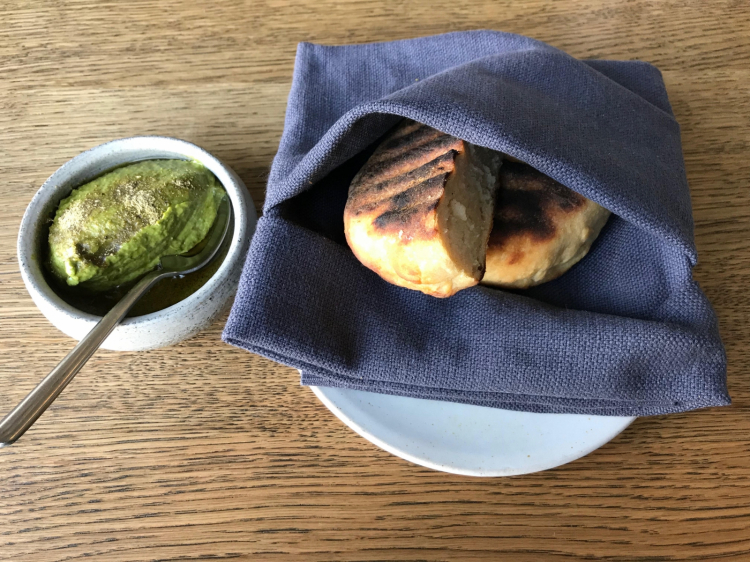
Potato bread, cream of kale, kale stalks and yogurt, sunflower seed oil
The inspiration came from a precise and harsh analysis of the current state of restaurants: «They’re very materialistic: we felt the need to stand out from everyone else, in the way we cook, in the way we use our products. So we decided to pursue sustainability in every possible way. I’m truly convinced that fine dining today is hardly sustainable. We cannot afford to cook like this for longer than a decade from now. Then chefs will acknowledge the consequences of this frenetic desire to have the best products from all around the world. You cannot do this. It’s not right. It’s not ethical. And when that moment comes, we will be ahead of them».
Since Matt Orlando and his team first started to experiment on sustainability, the restaurant production of food waste decreased by 75%. And the research continues: «It’s a very significant result, but what’s most beautiful is that by trying to recuperate food waste, we’ve discovered new flavours: for instance, kale stalks, when fermented, dried and powdered, taste like sea weeds. And while initially this research was a prompt for our creativity, today it defines it. We start from food waste. Every dish starts from the idea of using what we call by-products. Only then do we decide which fish to use, which vegetable to pair. It’s like cooking backwards».
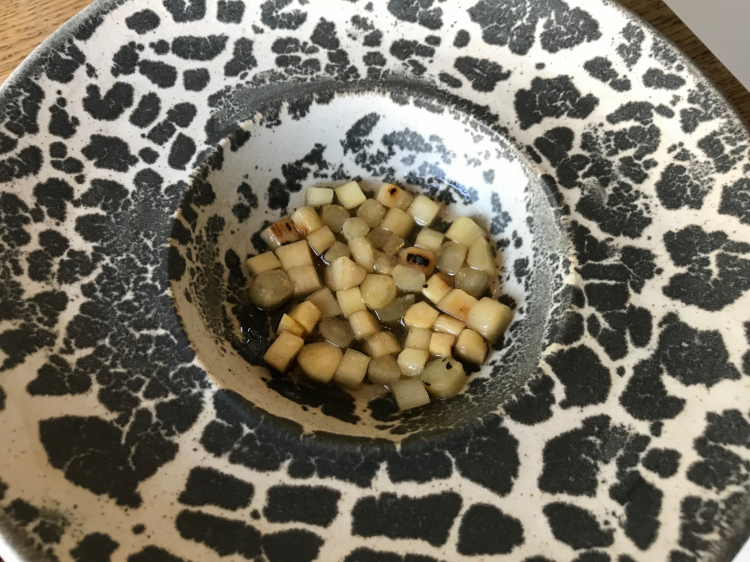
White asparagus grilled and marinated in camomile, lobster oil
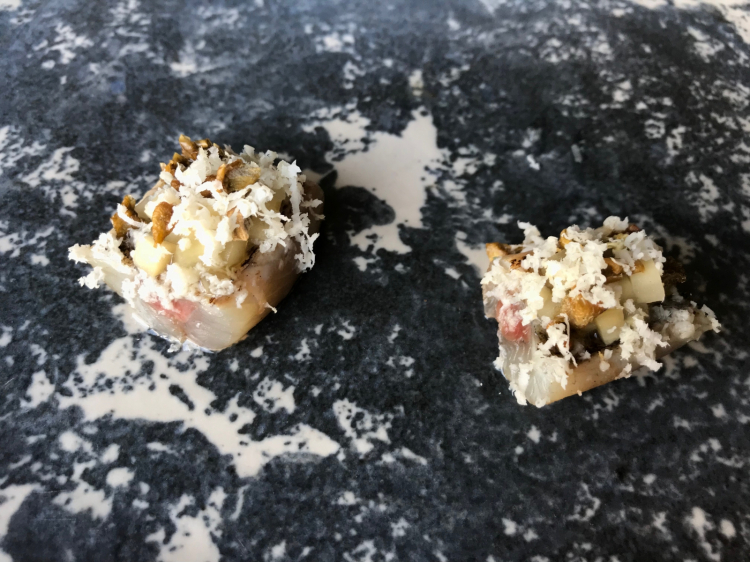
Snipefish marinated in miso made with the by-products of the beer brewed at the restaurant, green tomatoes in brine, fresh horseradish
It’s a hard, demanding process, but it also allows for plenty of satisfaction: «Ninety percent of our experiments fails – laughs
Matt Orlando – and I must be frank: I’ve only one year ago did I start to think I’ve reached the goals I had in mind, after four attempts. Finally we really start to understand what we’re doing, to dominate the techniques we use to process different ingredients, and to foresee, more or less, what we’ll get. But this constant evolution is really thrilling and fun. Taking risks every day is the reason why we enjoy cooking».
At Amass they certainly have fun. And not just those in the kitchen. Guests have even more fun. They might ignore the research behind every dish: if you don’t already know the philosophy behind Orlando’s work, when arriving at the restaurant’s beautiful open-space, when opening the menu, or speaking with the waiters, nothing refers to the goal of sustainability behind every choice made in the kitchen.
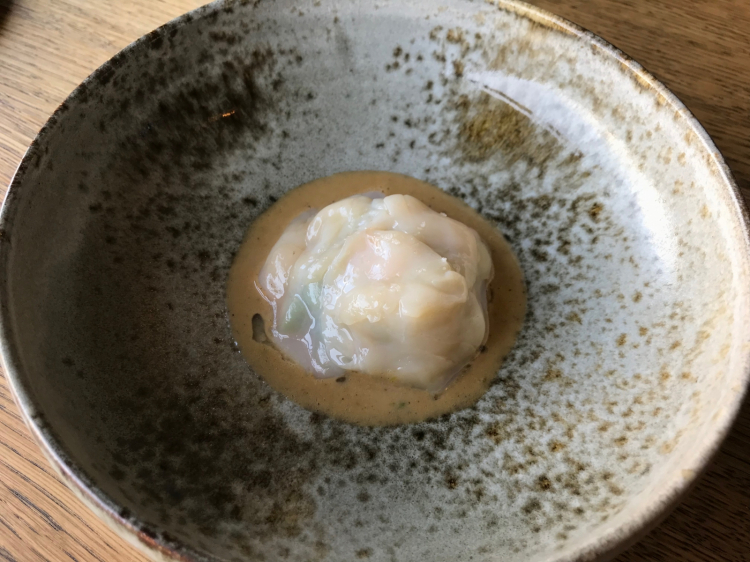
Green asparagus, scallop roe, scallop carpaccio
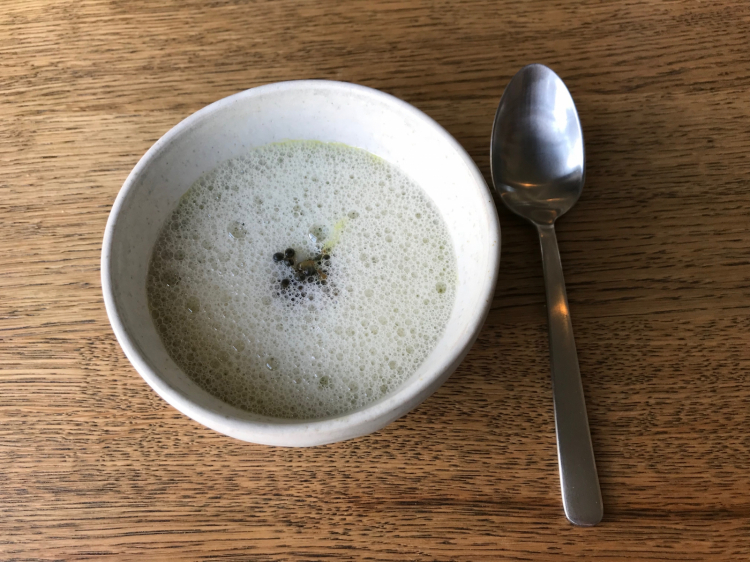
Egg yolk cooked at a low temperature, curdle, broth and capers of garlic
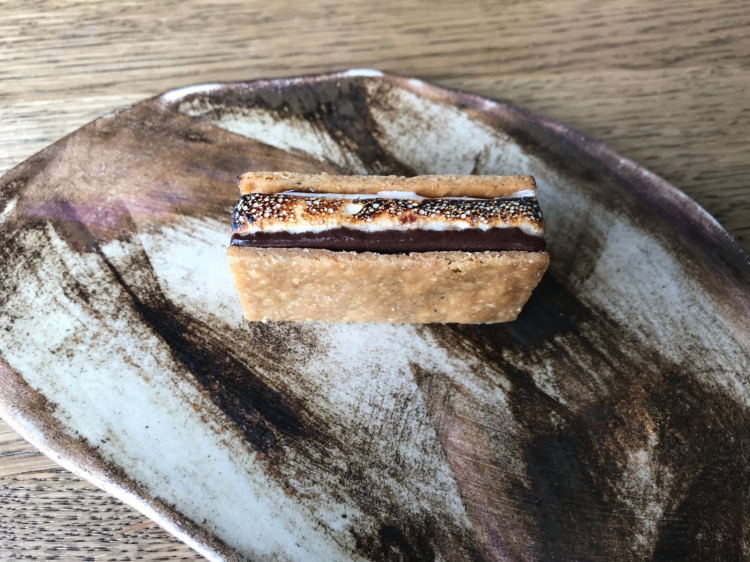
Black pepper biscuit, coffee marshmallow, chocolate
«This is for me essential, and it is something we often discuss – confirms the chef from
Amass. – First of all, we don’t want to preach to those who eat here. Besides, what we do is not easy to explain, many could take it like: “ok, so I’m about to eat rubbish”. Our ultimate goal is to serve delicious, tasty dishes, so that our guests can enjoy themselves. Our job would be pointless if what we serve wasn’t delicious: during the dinner, guests will gradually realise they’re eating something different. At the end of their tasting they receive a small card in which we explain how we work. I believe this is the best way to have an impact on people: first you serve something delicious; then you explain that you made those delicacies in a sustainable way».
Translated into English by Slawka G. Scarso
Amass
Refshalevej, 153
1432 - Copenhagen
+45.43584330
Closed on Sunday and Monday; open at lunchtime only on Friday and Saturday
Tasting menu 695 and 995 Danish krone